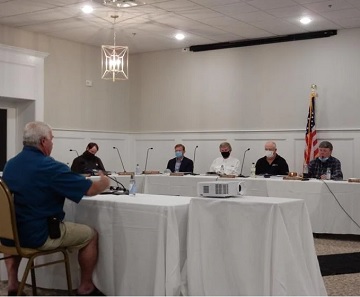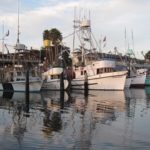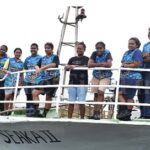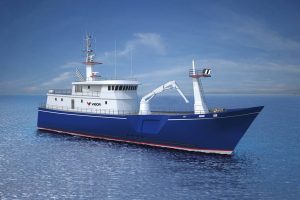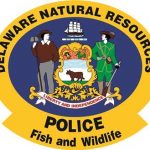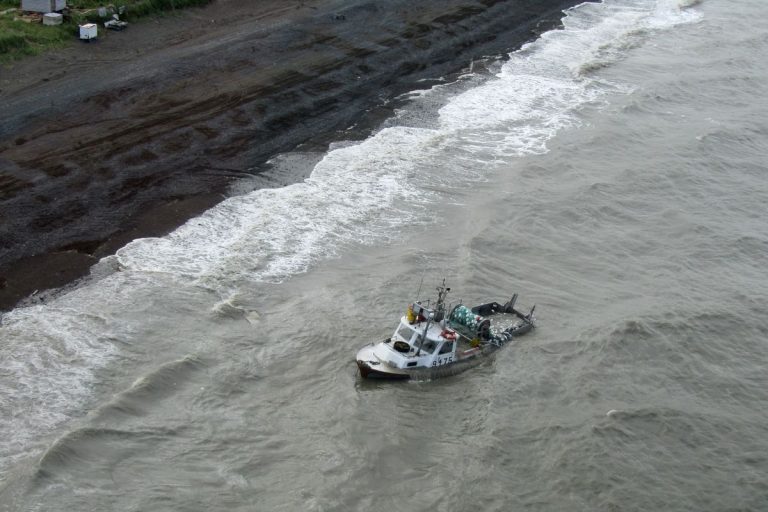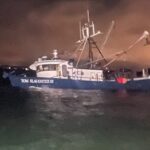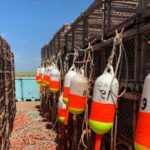Tag Archives: Coastal Conservation Association
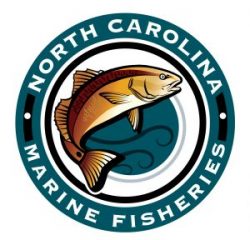
Fisheries commission to decide controversial amendments for striped bass, striped mullet plans
With the N.C. Marine Fisheries set to decide on two hotly debated fisheries management plan amendments – striped bass and striped mullet – later this week, the N.C. Fisheries Association has been urging its members to show up for the Emerald Isle meeting and weigh in. The estuarine striped bass amendment is set to be voted on during a session Thursday, Nov. 17 at 2 p.m., while the striped mullet vote is scheduled during a session that begins at 9 a.m. Friday, Nov. 18. Glenn Skinner, N.C. Fisheries Association urged the organization’s members to contact marine fisheries commissioners and attend the meeting to comment. >click to read< 15:08
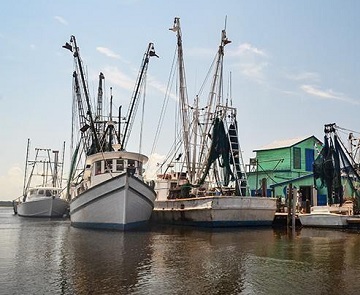
N.C. decides not to appeal to Supreme Court for review in lawsuit over marine fisheries regulations
Glenn Skinner, executive director of the N.C. Fisheries Association, a trade and lobbying group for North Carolina commercial fishermen, said Thursday he was “surprised and a little confused” by the state’s decision this week not to appeal to the state Supreme Court to reverse a September Appeals Court ruling that allows the state to be sued for alleged failure to protect North Carolina’s fisheries. The N.C. Court of Appeals ruled unanimously in September that the state chapter of the Coastal Conservation Association, a recreational fishermen’s group that bills itself as an advocate for “sound management of public trust marine and estuarine resources,” could sue the state, rejecting the state’s claim of sovereign immunity. >click to read< 19:56
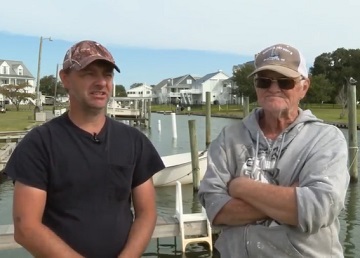
North Carolina: New quota cuts Southern flounder fishing off in one week, frustrating fishermen
Maurice Mann, a commercial fisherman, expressed his frustration. Maurice and his son Jasper Mann were geared up for a good season of flounder fishing, getting new nets and catching around 100 pounds of Eastern Carolina’s popular sea dwellers. After less than a week on the water, they found themselves thousands of dollars in the hole when their buyer told them the Division of Marine Fisheries said to reel it in. They were told the number of flounder they allowed to be caught commercially in September had already been met. Video, >click to read< 14:34
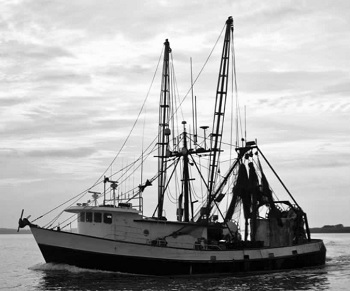
Norh Carolina: Commercial fishermen are not yet alarmed by court ruling
Although the N.C. Court of Appeals ruled Tuesday that the state can be sued for alleged failure to protect North Carolina’s fisheries, state officials and advocates for commercial fishermen are not yet alarmed. Glenn Skinner, executive director of the N.C. Fisheries Association, a trade and lobbying group for North Carolina commercial fishermen, said Tuesday it’s his understanding the appeals court verdict only rules that the CCA and its 86 individual plaintiffs have “standing,” which is the right to bring the suit. “This ruling was not based on factual evidence in the case, it just says it can move forward,” Skinner said. “We’re not shocked by this. >click to read< 13:36
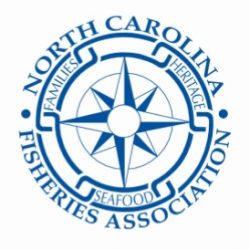
North Carolina Fisheries Association Weekly Update August 29, 2022
At the August Marine Fisheries Commission (MFC) meeting, Amendment 2 to the Striped Bass FMP and the unjustified net ban in the upper Neuse and Pamlico Rivers was on the agenda once again. Amendment 2 was up for final approval by the MFC, which we strongly opposed as long as the continuation of the net ban in the upper Neuse and Pamlico Rivers is incorporated into the Amendment. The Coastal Conservation Association (CCA) of NC, on the other hand, seemed to support the final approval of Amendment 2, only if the net ban remains part of the FMP. Surprised? Probably not, after all for decades the CCA has pushed for a net ban and, for decades, the NCFA has opposed this extreme agenda, making the gill net debate a constant source of friction at virtually every fisheries meeting. Another constant through the years has been the CCAs willingness to misinform and misuse data to support their agenda and the August MFC meeting was no exception. >click to continue reading< 18:49

North Carolina Fisheries Association Weekly Update for July 18, 2022
Does CPR Work on Fish? The Coastal Conservation Association Seems to Think SO! – After reading this title you’re probably envisioning a forty-pound Red Drum lying on the deck of a boat, straddled by an angler, receiving mouth to mouth followed by a round of rapid chest compressions, but that’s not the CPR I’m referring to. The CPR I’m talking about is the Coastal Conservation Association’s (CCA) Catch, Photo, and Release (CPR) Initiative. In Coastal States across the Country, including North Carolina, the CCA is holding CPR fishing tournaments where anglers can win big prizes for catching, photographing, and releasing numerous species of coastal finfish. The rules are simple, pay your entry fee, receive your wristband, catch a qualifying species of fish, photograph the fish lying on a ruler with your wristband visible, release the fish, and the longest fish or combination of fish wins. And of course, you have to be a CCA member to win! >click to read, to read all the updates >click here<, for older updates listed as NCFA >click here< 11:15

North Carolina Fisheries Association Weekly Update for April 25, 2022
Is North Carolina allowing fishermen to circumvent the Endangered Species Act? On April 6, 2022, the Coastal Conservation Association (CCA) of North Carolina sent out an email with so much disinformation I can’t even begin to address it all in one article. The email contained many of the same half-truths and outright lies we’ve been exposing over the last few months but one, above all, really rubbed me the wrong way. The CCA claimed that the “use of gill nets continues in North Carolina waters because the state holds two permits on behalf of commercial fishermen that allow them to circumvent the Endangered Species Act protections and kill or harm endangered sea turtles and sturgeon.” Circumvent. Really? >click to read the WeeklyUpdate<, to read all the updates >click here<, for older updates listed as NCFA >click here< 08:58

North Carolina Fisheries Association Weekly Update for April 11, 2022
A recent study conducted by researchers at LSU shows that Southern Flounder Stocks have declined throughout their entire range from North Carolina to Texas. The study was triggered by dramatic declines in the number of Southern Flounder in Louisiana waters. In 2017, Louisiana’s recreational Southern Flounder harvest declined to a mere 124,000 pounds, down from a high of 624,000 pounds in 2013. The findings of the LSU study fly directly in the face of claims made by the Coastal Conservation Association (CCA) of NC and the NC Wildlife Federation (NCWF), who suggests that decline of Southern Flounder is solely a NC issue caused by commercial fishing, specifically gillnetting. >Click here to read the Weekly Update<, to read all the updates >click here<, for older updates listed as NCFA >click here<
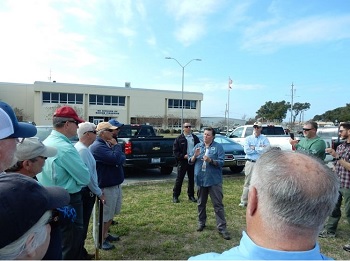
Protestors gather outside NCDMF Monday to oppose new flounder, shrimp rules
The Coastal Conservation Association’s North Carolina chapter organized the protest Monday. About 33 participants stood out front of the division building on Arendell Street, holding up signs with messages expressing their displeasure with recent actions the N.C. Marine Fisheries Commission took in regards to the management of the southern flounder and shrimp fisheries. Some passing motorists honked their horns in response to the protest. The association is a recreational fishing nonprofit dedicated to coastal environment conservation. CCA-NC Carteret County chapter president Van Parrish was leading the protest Monday. >click to read< 16:04
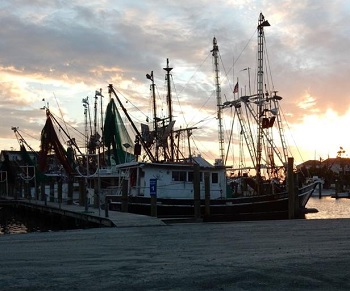
N.C. Marine Fisheries Commission approves shrimping amendment plan
Shrimpers will not be allowed to trawl in the crab sanctuaries, Bogue Sound or the Carolina Beach Yacht Basin, now that the state shrimp fishery management plan has been amended. The N.C. Marine Fisheries Commission gave final approval Feb. 25 to the Shrimp FMP Amendment 2 at its regular business meeting in New Bern. The amendment sparked strong opposition from commercial fishermen, seafood dealers and the general public early in its development when it proposed widespread shrimp trawl closures. In response, the commission chose fewer area closures than first proposed. >click to read< 15:23

North Carolina Fisheries Association Weekly Update for January10, 2022
What the Wildlife Federation isn’t telling you about shrimp trawling in NC! Like the Coastal Conservation Association (CCA), the North Carolina Wildlife Federation has very strong opinions about commercial fishing, especially the use of gill nets and shrimp trawls to harvest seafood. They consistently provide their perspective on these issues to the public, and as I pointed out last week, they specialize in playing it fast and loose with the facts. I’ll certainly be providing you with more examples of the deception in the coming weeks. (continues) >Click here to read the Weekly Update<, to read all the updates >click here<, for older updates listed as NCFA >click here< 09:31
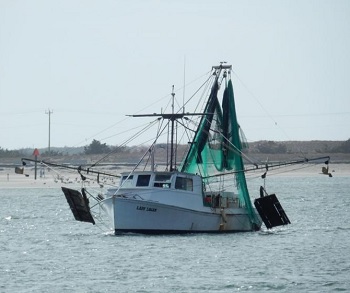
Closing inland shrimping will cost the consuming public more
More than just the livelihood of approximately 119 small, independent commercial fishing businesses stand to be hurt by a proposed N.C. Division of Marine Fisheries recommendation closing large swaths of inland waters to shrimping. This decision will have a negative impact on the primary stakeholders of this fishery, hundreds of thousands of consumers who enjoy fresh, local wild caught seafood. The DMF proposal, entitled Amendment 2 to the state’s Shrimp Fisheries Management Plan, notes that the shrimp fishery is “consistently one of the top two commercial fisheries by value” in the state. In 2019 this fishery had a “dockside value of over $22 million,,, Not noted in this report is the consumer benefit of the fishery which is difficult to quantify. >click to read< 07:53

Proposed net ban, restriction referendum raises concern among commercial fishing advocates
A proposed referendum for net bans and restrictions missed the state legislature’s crossover deadline, but its very introduction has caused alarm among some commercial fishing officials. State Rep. Bill Richardson, D-Cumberland, introduced House Bill 513,,, the fact it was proposed was enough to spark concern with commercial fishing advocates and a local marine biologist. N.C. Fisheries Association Executive Director and commercial fisherman Glenn Skinner and Crystal Coast Ecotours owner and operator Jess Hawkins have voiced their opposition. >click to read< 11:29

NC Fisheries Association seeks to intervene in civil suit against state
The N.C. Fisheries Association, a nonprofit dedicated to supporting the state seafood industry, filed Jan. 28 in Wake County Superior Court a motion to intervene in the civil complaint filed Nov. 10, 2020, by the Coastal Conservation Association’s North Carolina branch against the state. CCANC, a recreational fishing and conservation nonprofit, alleges state officials have mismanaged coastal fisheries resources. “Along with our motion to intervene, we have filed a proposed motion requesting the dismissal of the CCA lawsuit against the state,” the association said. >click to read< 07:02
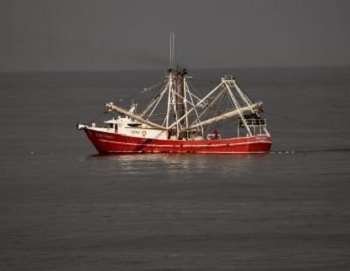
One lawsuit dismissed, another filed against State of North Carolina over fisheries management
The latest suit was filed on Tuesday in state court, the same day another group’s legal action against government officials’ management of marine fisheries in North Carolina was dismissed in federal court. The Coastal Conservation Association of North Carolina, along with 86 North Carolinians, filed their civil action Tuesday against the state in Wake County Superior Court. In an unrelated case, an organization called the North Carolina Coastal Fisheries Reform Group filed a federal lawsuit in August saying regulations that allow large, ocean-going shrimp trawlers to work in the state’s sounds violated the Clean Water Act. >click to read< 08:01
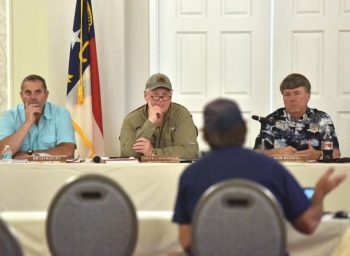
North Carolina: After public input, panel leans toward Southern flounder harvest reduction
State fisheries managers plan to reduce the harvest of southern flounder – commercial and recreational – by 62-72% to address problems with the spawning stock.,, met to select preferred management options for Southern Flounder Fishery Management Plan Amendment 2,,, N.C. Fisheries Association Executive Director Glenn Skinner said he’s been talking with commercial fishermen,,, “Their concern is when it will happen this year,” he said. “We’d ask you to do it in December. We need (the flounder harvest) this year. A lot of people still have hurricane damage. We need to be able to reinvest in the industry. Reductions have been made before (to the flounder harvest). They may not have been enough.”>click to read<09:26
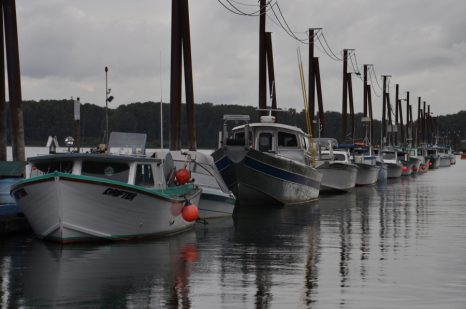
Columbia River Reforms – Both sides on gillnet issue dig in
A crucial vote concerning the Columbia River Reforms regarding gillnets will be taken by the full Oregon Fish and Wildlife Commission at a meeting on June 6-7 in Salem It will determine whether the alterations suggested by the joint-state task force will be adopted.,,, Former Washington commissioners and fisheries scientists have also weighed in with a letter to the legislature, and groups that oppose or endorse the changes have rallied the troops. >click to read<10:28
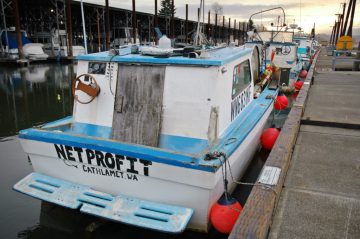
Columbia River Reforms – Change to gillnet policy stokes sport fishing anger
In a vote that has angered the sport fishing community, the Washington Fish and Wildlife Commission (WFWC) has voted to alter the Columbia River Salmon Policy 3620, known as the Columbia River Reforms, concerning the use of gillnets in the main stem Columbia River. The vote was held on March 2 in Spokane. The changes to the policy follow a five-year review, and recommendations from a joint-state task force that is composed of three commissioners from both states.,,, Hobe Kytr of Salmon For All, a commercial fishing advocacy group, sees the action as appropriate. “The policy that was enacted at the request of former Oregon Governor John Kitzaber has been a failure from the very beginning,” said Kytr. “It was a matter of putting a policy in place and then trying to find the scientific facts to back up the policy.” >click to read<11:30
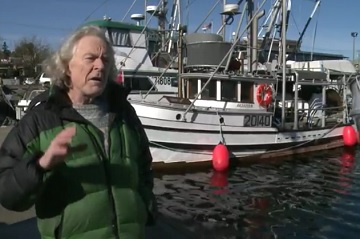
Salmon gill net fishing ban narrows focus to Columbia River
A push to ban non-tribal gill net fishing for salmon on the Columbia River is no shock to Pete Knutson, who has witnessed several similar attempts like it in his lifetime. “You can sell it to people who know nothing about the resource, and it sounds like a good idea,” Knutson said. Knutson owns Loki Fish Company, a business his entire family has helped build. It’s families like his that he’s worried about if the ban passes. “If you’re concerned about the resource, you want to keep those portions of the population that are living from the resource in business because they are the best stewards of the resource,” Knutson explained. >click to read<15:31
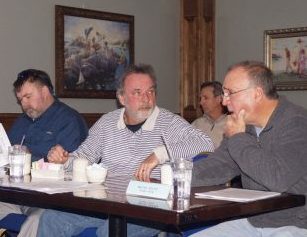
Lingering N.C. Fisheries Association issues persist into 2019
Captain George’s was the venue for the recent 2019 North Carolina Fisheries Association’s Annual Meeting, which addressed issues that included conflicts with special interest groups, shrimp trawl bans and aquaculture in the sounds. The NCFA is the primary organization promoting, providing education and, in recent years, defending North Carolina’s commercial fishing industry. NCFA board presided over an extensive agenda, discussing,,, >click to read<16:17
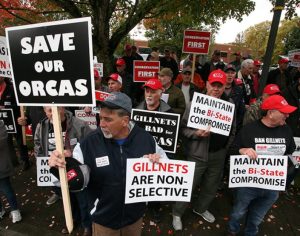
Feud over gill nets boils again
The Washington Fish and Wildlife Commission held a series of meetings at the Heathman Lodge in Vancouver from Thursday through Saturday to receive a report from state staff on the Columbia River Basin Salmon Management Policy C-3620, and review the results of that policy. During the Thursday meeting the WDWC was joined by the Oregon Fish and Wildlife Commission. While the commissions heard the report and reviewed possible options for the future of the policy, members of the Coastal Conservation Association (CCA) gathered outside the lodge to protest the prospect of the commission’s abandoning the policy entirely, which is one option being considered. >click to read<11:34
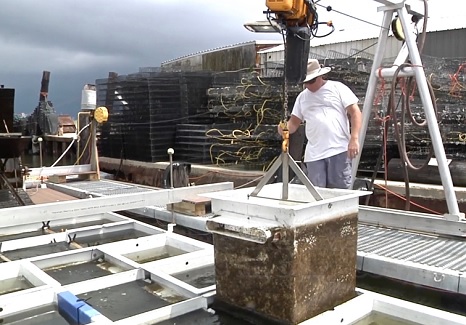
Bill’s changes would allow industrial-scale oyster farming in N.C.
Should oyster farming in North Carolina be a cottage industry or marine industrial operations owned by nonresident corporations? That is the question facing legislators working on changes to the state’s oyster aquaculture statutes enacted in 2017. Senate Bill 738, sponsored by Sen. Bill Cook, R-Beaufort, Sen. Harry Brown, R-Onslow and Sen. Norm Sanderson, R-Pamlico, drew strong opinions when it was discussed on May 30 at a meeting of the Agriculture, Environment and Natural Resources Committee co-chaired by Cook and Sanderson. >click to read<11:46

Letter: CCA wants to kill competition
Many years ago I believed in the need for a Coastal Recreational Fishing License, and after reading the Coastal Conservation Association (CCA) mission statement written at that time, which included the benefits for ALL those involved in the coastal fisheries (recreational and commercial), I joined and became a lifetime member to help achieve the goal of a recreational saltwater fishing license. Over the years I have seen this association move more and more into just another political attack group. After spending three years on the Southern Flounder Advisory Council, I had seen enough. Doug Bolton >click to read<13:46:06
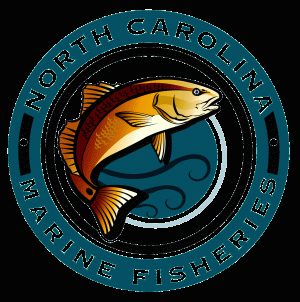
Editorial: A callous agenda – defining who is a commercial fisherman
Once again defining who is a commercial fisherman in North Carolina is on the N.C. Marine Fisheries Commission’s agenda when it meets Wednesday and Thursday at the Blockade Runner in Wrightsville Beach.We say “once again” because as county resident Bill Hitchcock pointed out in a January letter to the editor, the definition “has been clearly defined since 1997 and thoroughly investigated, debated ad nauseam and determined to be properly defined by the commission back in October 2010.” >click to read< 08:57

Commentary: CCA, GOP to blame for proposed license change – “redefining a commercial fisherman.”
Imagine you hold a state license in your profession, say as a general contractor. Then you start a side business that takes off. Maybe it’s a restaurant or a consulting business. Soon, it accounts for more than half of your income. At the same time, your original business continues to thrive while providing a valuable service and an irreplaceable part the family income.,, Then the State of North Carolina comes knocking, demands to audit your financial records and informs you that since you no longer earn more than 50 percent of your income from your “licensed” profession, you are no longer a general contractor. >click here to read< 09:31

Letter to the Editor: Redefining a commercial fisherman
According to a N.C. Division of Marine Fisheries (DMF) release, at the N.C. Marine Fisheries Commission (MFC) meeting last November in Kitty Hawk, there was a motion by Commissioner Chuck Laughridge to, “Ask the chairman to appoint a committee of commission members to develop a definition of a commercial fisherman, with staff support from the Division of Marine Fisheries, to bring an update back to the commission at its February 2018 meeting.”,, So why is MFC Commissioner Chuck Laughridge wanting to define what has already been defined? Interestingly enough, this isn’t the first time the MFC has attempted to define, or rather redefine a commercial fisherman. The real question is why? >click here to read< 09:45
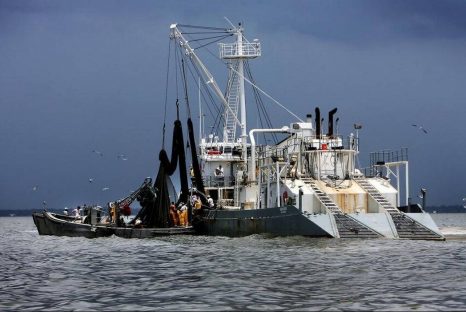
Why Omega Protein has stirred up a big stink about a small fish
The disagreement between activists and Omega Protein depends on the answer to a simple question: Are there enough menhaden in the Gulf of Mexico? Omega says there are plenty, and it wants to keep it that way. Members of the Sierra Club Gulf Coast Group, the Coastal Conservation Association and other groups have their doubts. It’s an argument recreational fishermen and conservationists have been having with Omega for years. Omega has a menhanden reduction plant in Moss Point and regularly fishes the Mississippi Sound. The opposition to its activities began anew with vigor earlier this year when Omega began seeking a “certified sustainable seafood” designation from the Marine Stewardship Council. MSC is a London-based nonprofit (although it collects royalties from licensing its “ecolabel”) that was set up in 1997 by the World Wildlife Fund and Unilever, a global conglomerate that was at the time one of the world’s largest producers of frozen seafood. click here to read the story 10:28
Op-ed: E-mails continue a troubling practice on fisheries panel
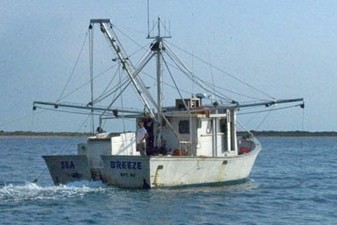 With a critical vote pending on a petition to limit shrimp trawling in state waters, a member of the North Carolina Marine Fisheries Commission made no secret of his position in an e-mail to a concerned chef from Charlotte. The e-mail was among several by Commissioner Chuck Laughridge to people who had submitted written comments on the petition, which supporters say is aimed at protecting fish species that are discarded as by-catch after they are hauled in by shrimp nets. Laughridge wrote the e-mails despite warnings from the commission’s lawyer about conducting business outside of public meetings and expressing opinions on pending issues before the fisheries panel has fully debated and voted on them. We at Outer Banks Catch are troubled by these continuing private communications. The commission is already under the cloud of a 2016 audit that cited several potential violations of open meetings laws in e-mail communications among its members. With the potentially devastating impact of limits to shrimp trawling on commercial watermen and consumers up and down the East Coast, the commission more than ever must be above-board. Continue reading the Op-ed here 22:38
With a critical vote pending on a petition to limit shrimp trawling in state waters, a member of the North Carolina Marine Fisheries Commission made no secret of his position in an e-mail to a concerned chef from Charlotte. The e-mail was among several by Commissioner Chuck Laughridge to people who had submitted written comments on the petition, which supporters say is aimed at protecting fish species that are discarded as by-catch after they are hauled in by shrimp nets. Laughridge wrote the e-mails despite warnings from the commission’s lawyer about conducting business outside of public meetings and expressing opinions on pending issues before the fisheries panel has fully debated and voted on them. We at Outer Banks Catch are troubled by these continuing private communications. The commission is already under the cloud of a 2016 audit that cited several potential violations of open meetings laws in e-mail communications among its members. With the potentially devastating impact of limits to shrimp trawling on commercial watermen and consumers up and down the East Coast, the commission more than ever must be above-board. Continue reading the Op-ed here 22:38
Sandy Semans Ross – My view: N.C. Wildlife Federation petition is short on science and facts
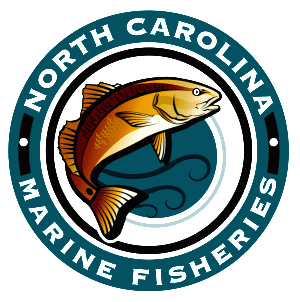 The Outer Banks Catch is a nonprofit focused on providing fact-based education to consumers about the commercial fishing industry and communities, and the habitat and water quality needed to maintain a robust fishery. With that mission comes a responsibility to correct erroneous statements whether made in the press or, such as in this case, in petitions for rule-making before the North Carolina Marine Fisheries Commission. The petition filed by the Southern Environmental Law Center on behalf of the North Carolina Wildlife Federation (NCWF) is based on the work of Jack Travelstead, an employee of the Coastal Conservation Association, and former Division of Marine Fisheries director, Louis Daniel, now contracted with NCWF. The document, amendment and submitted public comments contain few statements that Outer Banks Catch could provide to the public and stand behind their legitimacy. It requests designating all inland waters and three miles out into the ocean as a huge special secondary nursery area, thus prohibiting almost all shrimp trawling. Read the op-ed here 09:19
The Outer Banks Catch is a nonprofit focused on providing fact-based education to consumers about the commercial fishing industry and communities, and the habitat and water quality needed to maintain a robust fishery. With that mission comes a responsibility to correct erroneous statements whether made in the press or, such as in this case, in petitions for rule-making before the North Carolina Marine Fisheries Commission. The petition filed by the Southern Environmental Law Center on behalf of the North Carolina Wildlife Federation (NCWF) is based on the work of Jack Travelstead, an employee of the Coastal Conservation Association, and former Division of Marine Fisheries director, Louis Daniel, now contracted with NCWF. The document, amendment and submitted public comments contain few statements that Outer Banks Catch could provide to the public and stand behind their legitimacy. It requests designating all inland waters and three miles out into the ocean as a huge special secondary nursery area, thus prohibiting almost all shrimp trawling. Read the op-ed here 09:19






